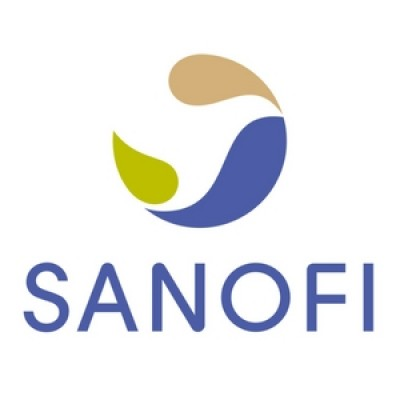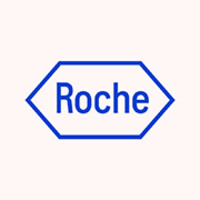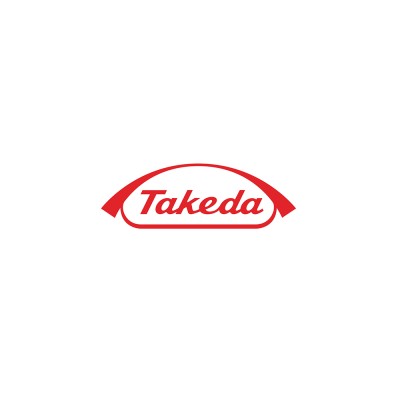A Lifeline for Hemophilia: Sanofi and Sobi's Renewed Commitment to Global Health
April 25, 2025, 5:09 pm

Location: United States, Massachusetts, Cambridge
Employees: 10001+
Founded date: 1981
Total raised: $1.1B

Location: United States, California, South San Francisco
Employees: 10001+
Founded date: 1896
In a world where access to healthcare can be as elusive as a mirage, the partnership between Sanofi, Sobi, and the World Federation of Hemophilia (WFH) stands as a beacon of hope. On April 25, 2025, these organizations announced a significant extension of their collaboration, pledging support for the WFH Humanitarian Aid Program for another five years. This renewed commitment promises to deliver vital medicines and financial assistance to those grappling with hemophilia and other inherited bleeding disorders, particularly in developing countries.
The partnership is not new. It has flourished for over a decade, rooted in a shared vision: to ensure that every person with hemophilia has access to the treatment they need. The latest agreement will see the donation of up to 100 million international units (IU) of factor therapy annually. This is not just a number; it represents the lifeblood for thousands who suffer from these disorders.
Since 2014, Sanofi and Sobi have donated a staggering one billion IUs of treatment products. This monumental effort has transformed the lives of over 22,000 individuals. Each unit is a thread in the fabric of hope, weaving together a future where treatment is not a luxury but a right.
The importance of this initiative cannot be overstated. Hemophilia is a condition that can turn everyday activities into perilous endeavors. A simple cut can lead to life-threatening complications. For many, the lack of access to treatment is a daily struggle. The WFH Humanitarian Aid Program addresses this gap, providing essential support to those who need it most.
Sanofi and Sobi's commitment is more than just a contractual obligation; it is a testament to their dedication to global health. Their partnership with the WFH exemplifies how collaboration can yield tangible results. By pooling resources and expertise, they are not just treating symptoms; they are changing lives.
The renewal of this partnership comes at a crucial time. As the world grapples with various health crises, the need for reliable healthcare solutions has never been more pressing. The WFH Humanitarian Aid Program serves as a model for how organizations can work together to address unmet needs. It is a reminder that when we unite for a common cause, we can achieve remarkable outcomes.
The leadership of Sanofi and Sobi has been instrumental in this journey. Their vision extends beyond mere philanthropy; it encompasses a holistic approach to healthcare. They are not just providing medicine; they are fostering a sustainable model that empowers communities. This approach ensures that healthcare professionals are equipped with the knowledge and tools necessary to support individuals with bleeding disorders.
The impact of this partnership is felt far and wide. In regions where healthcare infrastructure is weak, the WFH Humanitarian Aid Program acts as a lifeline. It delivers not only medicines but also hope. Patients and their families can breathe a little easier, knowing that help is on the way.
The WFH's mission, encapsulated in the phrase "Treatment for All," resonates deeply within this partnership. It is a vision of a world where no one is left behind, regardless of their circumstances. This commitment to inclusivity is vital in a global landscape often marked by disparities in healthcare access.
The significance of this partnership extends beyond the immediate benefits. It sets a precedent for future collaborations in the healthcare sector. It shows that with determination and collaboration, we can tackle even the most daunting challenges. The model established by Sanofi, Sobi, and the WFH can inspire other organizations to follow suit, creating a ripple effect of positive change.
As we look to the future, the renewed partnership between Sanofi, Sobi, and the WFH is a powerful reminder of what can be achieved when we come together. It is a call to action for others in the industry to join the fight for equitable healthcare. The road ahead may be long, but with each step, we move closer to a world where every individual has access to the care they need.
In conclusion, the extension of this partnership is not just a contractual agreement; it is a commitment to humanity. It embodies the spirit of collaboration and the belief that healthcare is a fundamental right. As Sanofi and Sobi continue their journey with the WFH, they are not just changing lives; they are reshaping the future of healthcare for those with hemophilia and beyond. Together, they are proving that hope is not just a dream; it is a reality within reach.
The partnership is not new. It has flourished for over a decade, rooted in a shared vision: to ensure that every person with hemophilia has access to the treatment they need. The latest agreement will see the donation of up to 100 million international units (IU) of factor therapy annually. This is not just a number; it represents the lifeblood for thousands who suffer from these disorders.
Since 2014, Sanofi and Sobi have donated a staggering one billion IUs of treatment products. This monumental effort has transformed the lives of over 22,000 individuals. Each unit is a thread in the fabric of hope, weaving together a future where treatment is not a luxury but a right.
The importance of this initiative cannot be overstated. Hemophilia is a condition that can turn everyday activities into perilous endeavors. A simple cut can lead to life-threatening complications. For many, the lack of access to treatment is a daily struggle. The WFH Humanitarian Aid Program addresses this gap, providing essential support to those who need it most.
Sanofi and Sobi's commitment is more than just a contractual obligation; it is a testament to their dedication to global health. Their partnership with the WFH exemplifies how collaboration can yield tangible results. By pooling resources and expertise, they are not just treating symptoms; they are changing lives.
The renewal of this partnership comes at a crucial time. As the world grapples with various health crises, the need for reliable healthcare solutions has never been more pressing. The WFH Humanitarian Aid Program serves as a model for how organizations can work together to address unmet needs. It is a reminder that when we unite for a common cause, we can achieve remarkable outcomes.
The leadership of Sanofi and Sobi has been instrumental in this journey. Their vision extends beyond mere philanthropy; it encompasses a holistic approach to healthcare. They are not just providing medicine; they are fostering a sustainable model that empowers communities. This approach ensures that healthcare professionals are equipped with the knowledge and tools necessary to support individuals with bleeding disorders.
The impact of this partnership is felt far and wide. In regions where healthcare infrastructure is weak, the WFH Humanitarian Aid Program acts as a lifeline. It delivers not only medicines but also hope. Patients and their families can breathe a little easier, knowing that help is on the way.
The WFH's mission, encapsulated in the phrase "Treatment for All," resonates deeply within this partnership. It is a vision of a world where no one is left behind, regardless of their circumstances. This commitment to inclusivity is vital in a global landscape often marked by disparities in healthcare access.
The significance of this partnership extends beyond the immediate benefits. It sets a precedent for future collaborations in the healthcare sector. It shows that with determination and collaboration, we can tackle even the most daunting challenges. The model established by Sanofi, Sobi, and the WFH can inspire other organizations to follow suit, creating a ripple effect of positive change.
As we look to the future, the renewed partnership between Sanofi, Sobi, and the WFH is a powerful reminder of what can be achieved when we come together. It is a call to action for others in the industry to join the fight for equitable healthcare. The road ahead may be long, but with each step, we move closer to a world where every individual has access to the care they need.
In conclusion, the extension of this partnership is not just a contractual agreement; it is a commitment to humanity. It embodies the spirit of collaboration and the belief that healthcare is a fundamental right. As Sanofi and Sobi continue their journey with the WFH, they are not just changing lives; they are reshaping the future of healthcare for those with hemophilia and beyond. Together, they are proving that hope is not just a dream; it is a reality within reach.

